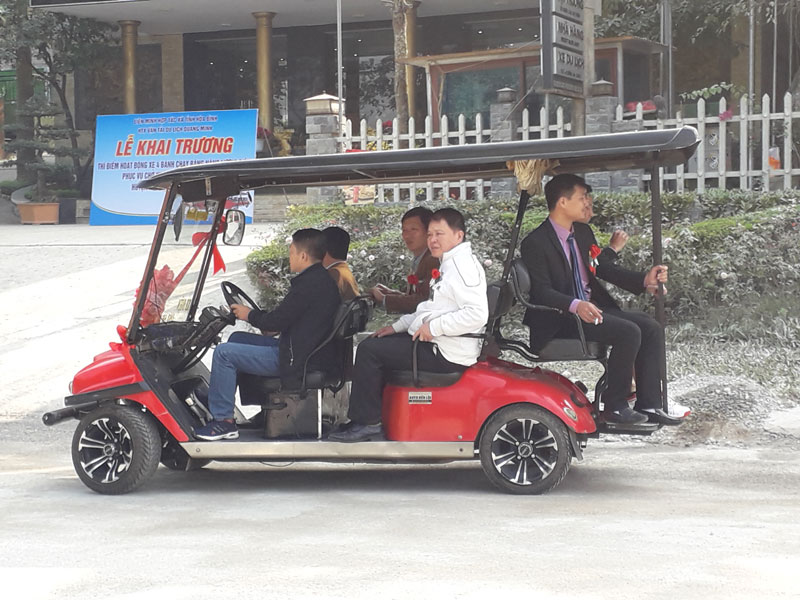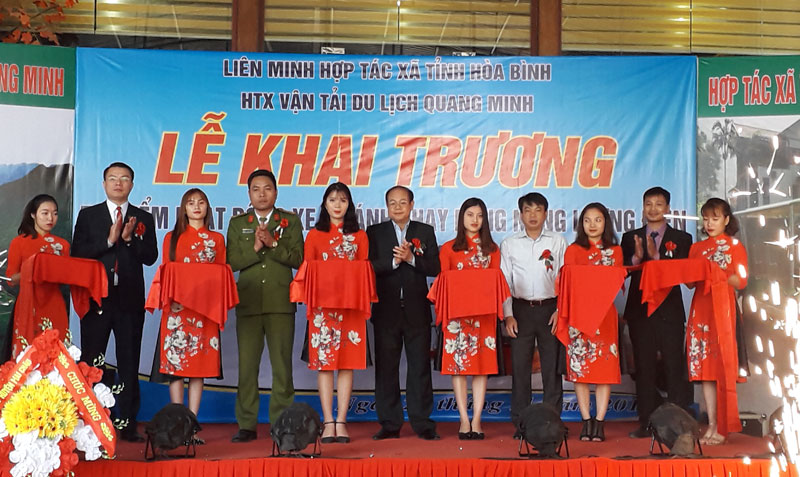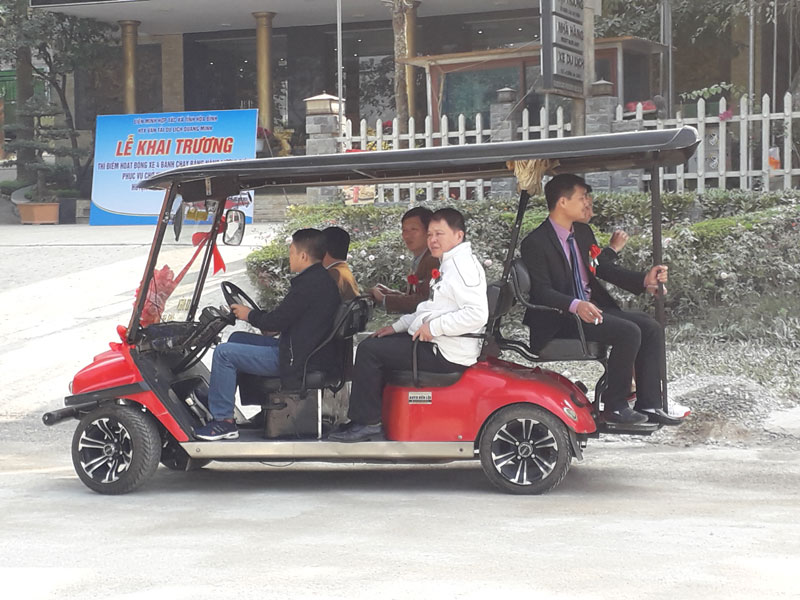
(HBO) - In collaboration with the provincial Cooperatives, Quang Minh Cooperative of Tourism Transport has launched a pilot operation of 4 wheel electric vehicles to transport tourists to visit Mai Chau district. There were Mr. Nguyen Quang Thang, the Vice Chairman of the District People's Committee and representatives of some related departments attending the ceremony.
With the advantage of famous cultural and
ecological tourism and craft village, in the recent years, Mai Chau has always
been an attractive tourist destination for domestic and international tourists
to visit and relax. In 2018, Mai Chau district has welcomed over 332,000
visitors, including 132,500 international visitors and nearly 200,000 domestic
visitors, the total revenue of tourism is estimated at over 107.6 billion VND.
The development of tourism has also brought many shortcomings, especially many
homestays and individuals have massively bought 4 wheel electric vehicles
without registration for passenger transport, at a time in the district there
are over 100 passenger cars. Due to that fact, on November 26th, Mai
Chau district officially decided to set up Quang Minh Cooperative with 7
members obtaining electric cars to serve tourists traveling in short distances
to the tourist destinations in Chieng Chau commune and Mai Chau town.

The leaders of Mai Chau district and related
departments cut off the opening band of the electric car service.
To congratulate Quang Minh Cooperative of
Tourism and Transport, Mr. Nguyen Quang Thang, the Vice Chairman of the
District People's Committee, requested the participating units to fully comply
with the provisions of the law on land road traffic; vehicles must be
registered, registry and meet all technical safety conditions, the driver must
also have a driving license as prescribed. They must not conflicts for
passengers, the fare will be collected as prescribed and they must absolutely
ensure traffic safety and environmental sanitation. Relevant agencies and units
need to be facilitated and identify stopovers, picking up and parking lots to
ensure the interests of cooperatives operating in accordance with current
regulations.

The delegates are experiencing the service of
4-wheel drive of Quang Minh Cooperative of Tourism and Transport.
This is a clean, fuel-efficient,
environmentally friendly transport vehicle. The operation of 4 wheel
electric-powered cars is currently of great interest to many local people. It
not only reduces environmental pollution, builds a civilized and modern tourism
image but also creates jobs for the local people. Moreover, it contributes to
overcoming the chaos in the management of electric cars today.
A diverse chain of eco-tourism and resort destinations concentrated in Hoa Binh city and the districts of Tan Lac, Da Bac, and Luong Son… Along with the launch of several key high-quality resort tourism projects, these developments have reshaped the landscape and enhanced the appeal of Hoa Binh as a travel destination.
Boasting diverse terrain, a mild climate, and rich natural resources, Cao Phong district is increasingly asserting its place on Vietnam’s tourism map, attracting both domestic and foreign visitors. The district is renowned for its stunning landscapes, majestic mountains, a crystal-clear hydropower lake, and the unique cultural identity of local ethnic groups.
With its pristine landscapes, unique cultural heritage of Muong ethnic minority, and an expanding range of visitor experiences, Tan Lac district of Hoa Binh has fast become a captivating destination for both domestic and international tourists.
Until now, Sung village in Cao Son commune, Da Bac district remains the only Dao ethnic community in Hoa Binh province to develop a community-based tourism model. Beyond its untouched natural landscapes, cultural identity serves as the cornerstone attraction for visitors.
Alongside the diverse cultural identities of the Kinh, Muong, Tay, Thai, Dao, and Mong ethnic people, Hoa Binh province is also renowned as the "capital" of the northwestern Vietnamese cuisine, offering unique and distinctive dishes. At festivals, during Lunar New Year (Tet), or on significant family or community occasions, special dishes are prepared, leaving a lasting impression on visitors.
A Phong Linh (Yellow Tabebuia) flower garden in Thang village, Thach Yen commune, Cao Phong district is currently in full bloom, drawing a large number of visitors.




